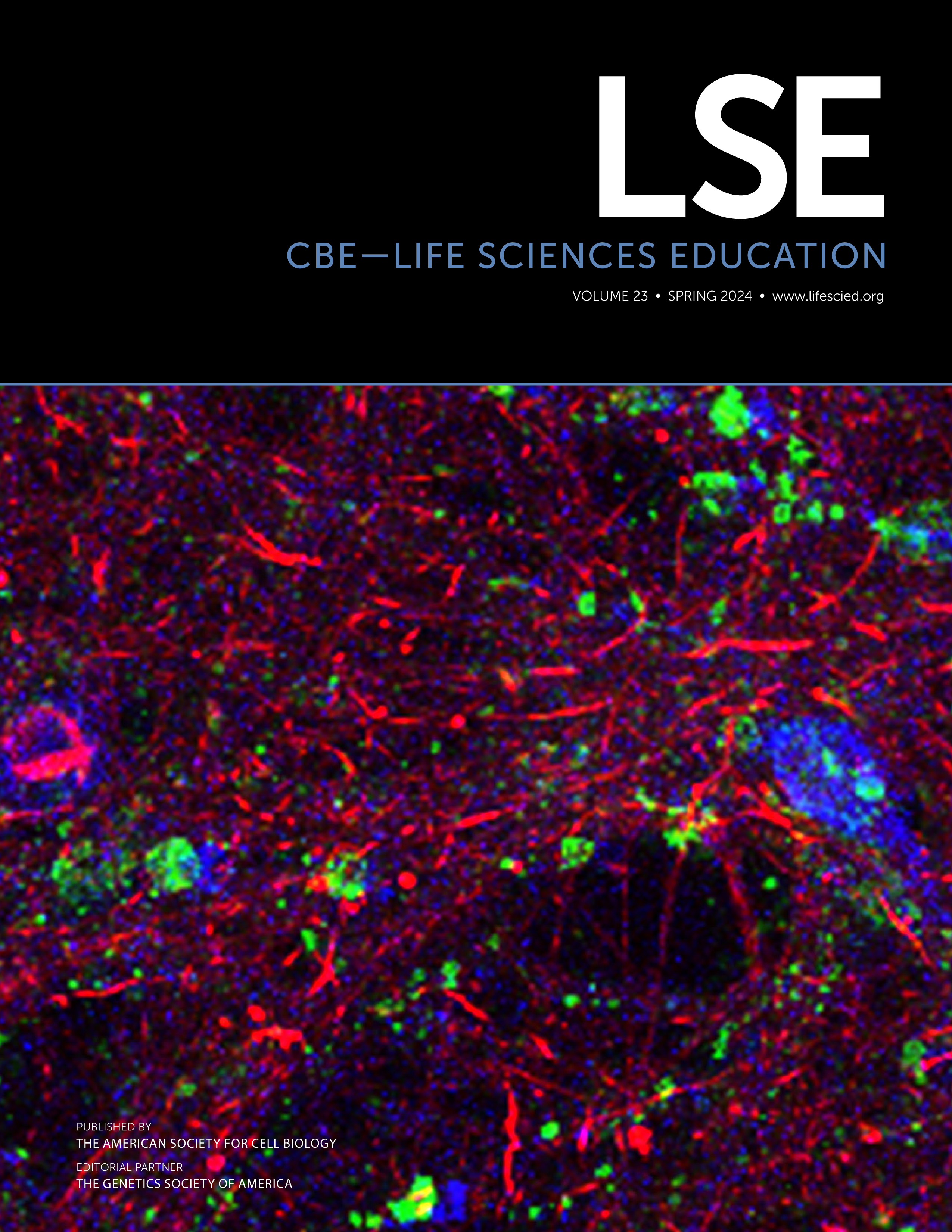Broadening Participation in Biology Education Research: A role for affinity groups in promoting social connectivity, self-efficacy, and belonging
Abstract
Discipline-based education research (DBER) has experienced dramatic growth over recent years, but with growth comes concerns about whether DBER efforts accurately represent the education landscape. By many measures, DBER does not feature a representative range of institutional contexts or a diverse array of voices. Numerous professional development efforts have sought to broaden DBER participation. However, few studies investigate factors that increase engagement by individuals from underrepresented contexts. Drawing on theory related to belonging, self-efficacy, and social learning communities, we investigated persistence in an affinity group aimed at engaging community college faculty (CCF) in biology education research (BER). CCF and CC contexts are dramatically underrepresented in BER in comparison to their central positioning in higher education. We conducted a 4-y study of CCF participants’ sense of belonging, self-efficacy, and network connectivity. Our results suggest a relationship between social connectivity, belonging, and persistence in the community, indicating an increase of either of these factors may increase persistence. Self-efficacy increased alongside belonging within the affinity group, which correlated with belonging in BER broadly. These results might inform efforts to engage underrepresented groups of DBER scholars and suggest that such efforts go beyond provision of resources and skills, to focus on building social connections.



